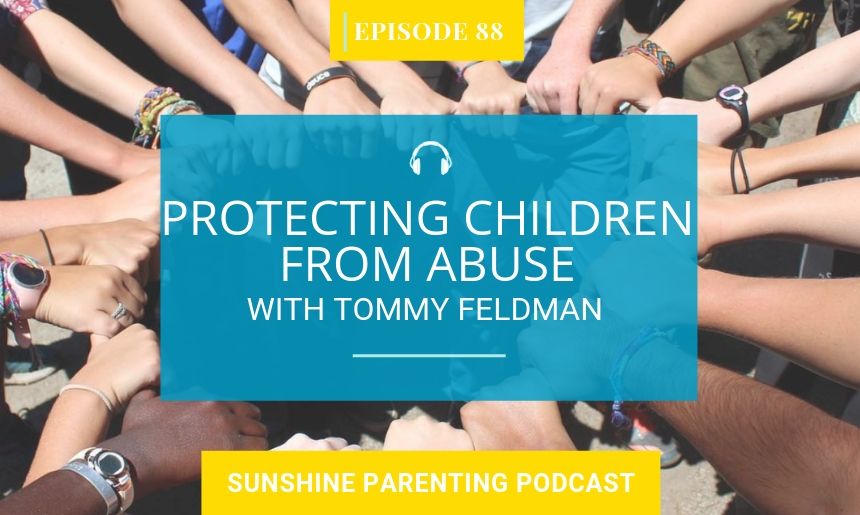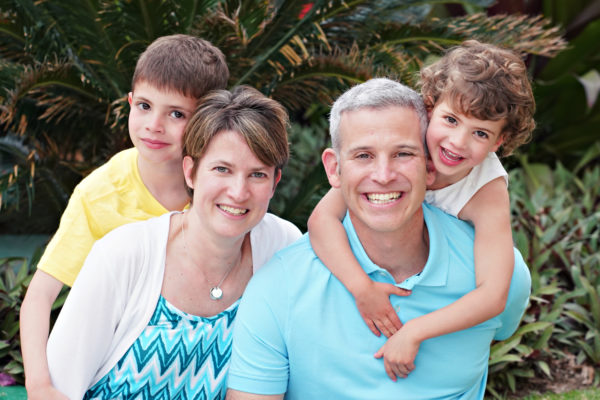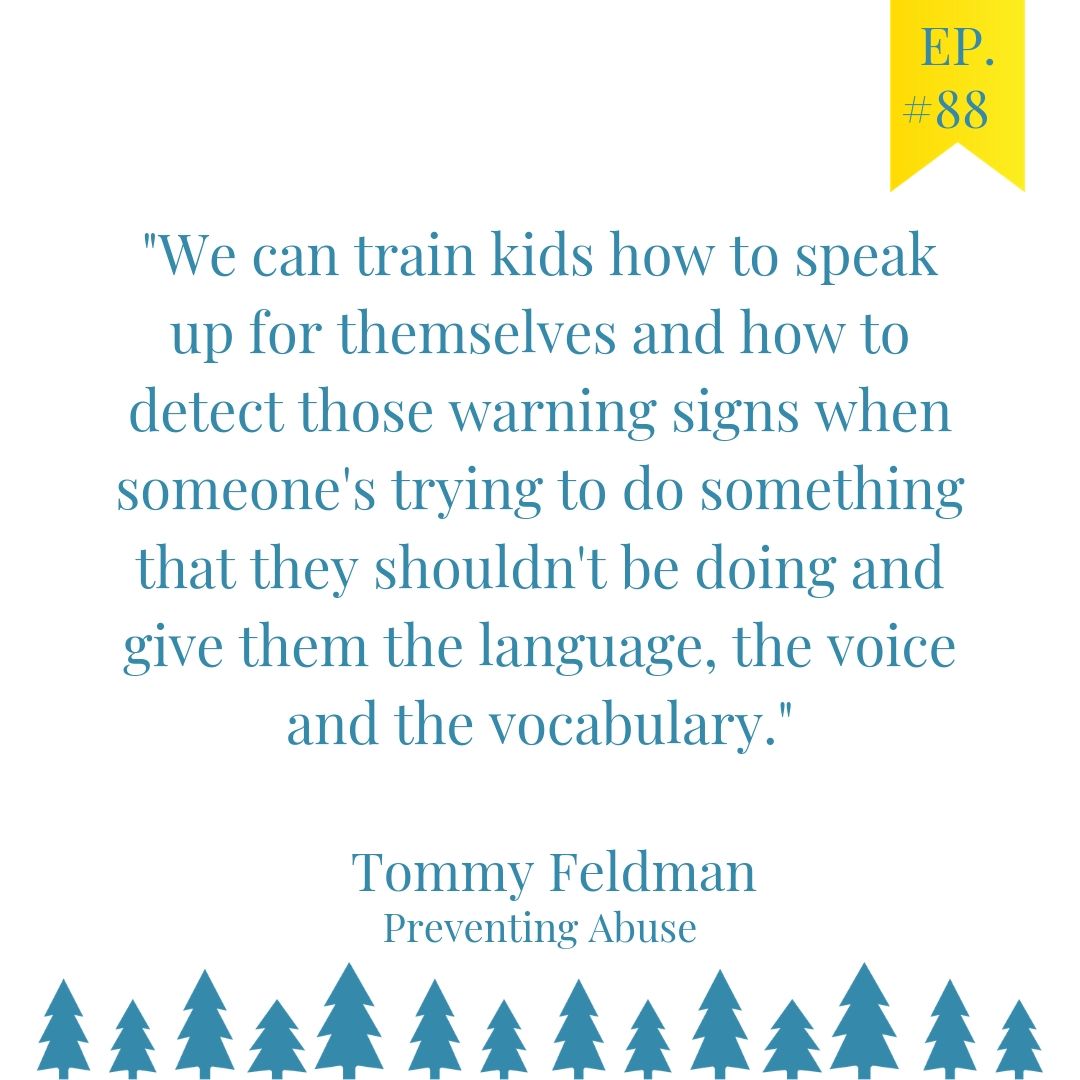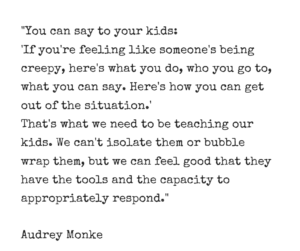
In this episode of the podcast, I interview Tommy Feldman, the founder and director of Camp Granite Lake in Colorado. We discuss protecting children from abuse, not only at camp but any time they are with a caregiver. This podcast episode has two parts: helping parents know what questions to ask childcare providers, and the best safety precautions, policies and procedures for camps and schools to have in place. Tommy has taken a very up-front approach in communicating with camp parents. You can read Tommy’s insights here: Preventing Sexual Abuse at Camp.

BIG IDEAS
- Tommy Feldman began to research how to prevent abuse and educate his community after hearing about an incident that occurred at a day camp eight years ago.
- Camps must take these important measures to ensure kids’ safety:
- Introduce the subject at the first interview with potential staff members, ask about any relevant training they’ve had.
- Require extensive staff training on how to interact with kids in every situation; never permit staff to be one-on-one with kids.
- Don’t allow staff to connect with kids one-on-one online or on social media.
- Train kids how to advocate for themselves and create a culture where they feel safe to speak up.
- Make sure kids know several different adults who they can go to if they need help.
- Parents can take these precautions:
- Make sure the camp or school is accredited and properly licensed.
- Ask questions:
- What do we do to keep kids safe from sexual abuse, molestation, and assault?
- What are the sort of steps you take to keep my child safe?
- What kind of certifications and licenses do you have? Camps should be accredited by the American Camp Association.
- Who are the different people that my child can go to if they need something?

QUOTES
AUDREY: “Parents need to feel empowered to ask questions. Well-run programs, whether it’s a school, a church camp, or anywhere else where children are present, do certain things and have policies in place, training, and screening that protect children.”
TOMMY: “It’s important for parents to be as straightforward as they can in asking questions of childcare providers. Everybody who takes care of your children is part of a team that is designed to help protect your children, and that is your school, your daycare, your after school program, sports team, your summer camp, your babysitter and anybody who’s around. So you can ask questions of all of those people and you should. And it’s an opportunity to learn from them and educate them.”
AUDREY: “The American Camp Association is the only major accreditation organization for summer camps. So if you’re looking at a camp, I would say that just that piece alone should provide a lot of assurance. These camps have chosen to go through a rigorous investigation basically, voluntarily making sure that their policies, staff training, hiring, supervision requirements, everything meets these high standards.”
TOMMY: “Ask questions and then listen, listen really closely and then ask some follow up questions. Just kind of dig and you’ll get a sense of how much you’re going to be able to trust that camp director and that community. And you can ask questions, not just who are the staff, but what does it look like when, or what’s the community approach to, or how do you know, what’s your involvement with, kinds of questions that are as specific as you can be. You’ve studied the website, you’ve talked to your friends, neighbors, and you just kind of dig around because you want to get a sense for what it’s gonna feel like for your child to be there. And by asking, just keep drilling down. You’ll get it at a certain point.”
TOMMY: “The reality is the rate at which these kinds of incidences are happening is extremely low in the camp world and not inconsistent with the rest of the universe.”
AUDREY: “At our camp, we really train our staff that they are protecting all the kids, not just the ones in their cabin. Their job is everyone in camp. So if they see a counselor who’s just getting short with kids or their tone of voice is not okay, we let our counselors know that it’s not just that person’s supervisor that’s responsible for keeping kids safe, emotionally and physically, it’s everybody.”
AUDREY: “We train our staff on these issues. We’re very specific. We let them know too, it’s protecting them as well. So the reason you’re never one on one in an enclosed space with the child is for both your own protection and the child’s.”
TOMMY: “The question that is not enough is, ‘do you background check your staff?’ Background checks are not always accurate and they only tell you people who have been caught doing this. Background checks themselves just don’t cut it.”
AUDREY: “Many perpetrators do try to work in industries where they have access to kids and what they do is they try to connect with the kids through the school, through the camp, through the other place and then start an outside relationship. If someone seems to be pursuing your child as a friend outside of camp or school, just because that person works with children in another setting I would not use that as validation that they should be alone with your child. I think that’s one of the things that is pretty clear that in a lot of cases it’s because parents gave someone access that they shouldn’t have had.”

TOMMY: “We’ve trained our kids at home to be the boss of their body, to use the correct anatomical terms for their private parts. And we’ve trained them that they’re the only ones that should touch their parts and they should do that in private.”
AUDREY: “You want your kids to be obedient and be respectful of authority and you also need them to not always do what adults tell them to do in some cases and have some discernment–or to at least know when they might want to ask a question. And that’s really important to teach kids.”
AUDREY: “I also want parents to not blankly trust just because someone has a background. For me, if I’m interviewing babysitters or we’re hiring staff, someone who’s worked at a lot of different places with kids is a red flag to me. Especially over a short period of time.”
AUDREY: “It’s good for parents to know that those of us who run camps really do take this seriously. We put a lot of things in place to protect children and it’s really important for us to keep kids safe. We’re keeping them safe when they’re on a boat, making sure they’re wearing a life jacket. We’re putting a helmet on them when they’re riding a horse to protect them, too. It’s all part of this overarching thing that we are here to make kids lives better and do positive things. And so, of course, we’re going to be taking whatever steps we can to keep them safe in all areas while they’re with us. ”
AUDREY: “You don’t have to live in fear and be constantly worried that this is going to happen to your child just because you see something sensational on the news. Instead, you can feel empowered to train your kids with what they need to know. Ask these good questions so that as you send your child off to these adventures in life, you can feel good that you are checking the places out and you can feel really confident that they’re safe.”
LINKS
Preventing Sexual Abuse at Camp
Darkness To Light: End Child Sexual Abuse
CBS News report & video from 12/10/18
Feather Berkower, Parenting Safe Children
RELATED POSTS/PODCASTS
Happy Campers: Camp Granite Lake (Golden, CO)
Five Reasons Not to Worry While Your Kids are at Camp
100 Questions About Summer Camp
Conversations Before College: Preventing Sexual Assault
Audrey’s book, Happy Campers: 9 Summer Camp Secrets for Raising Kids Who Become Thriving Adults, is available now.
